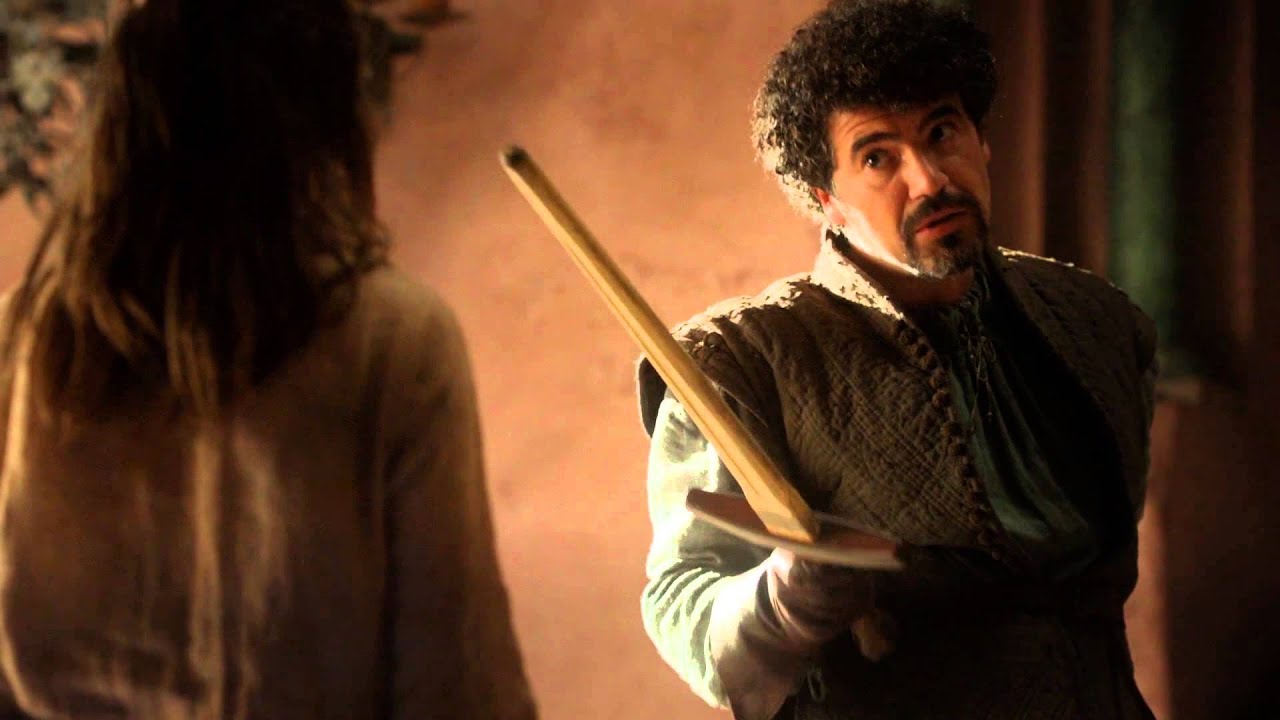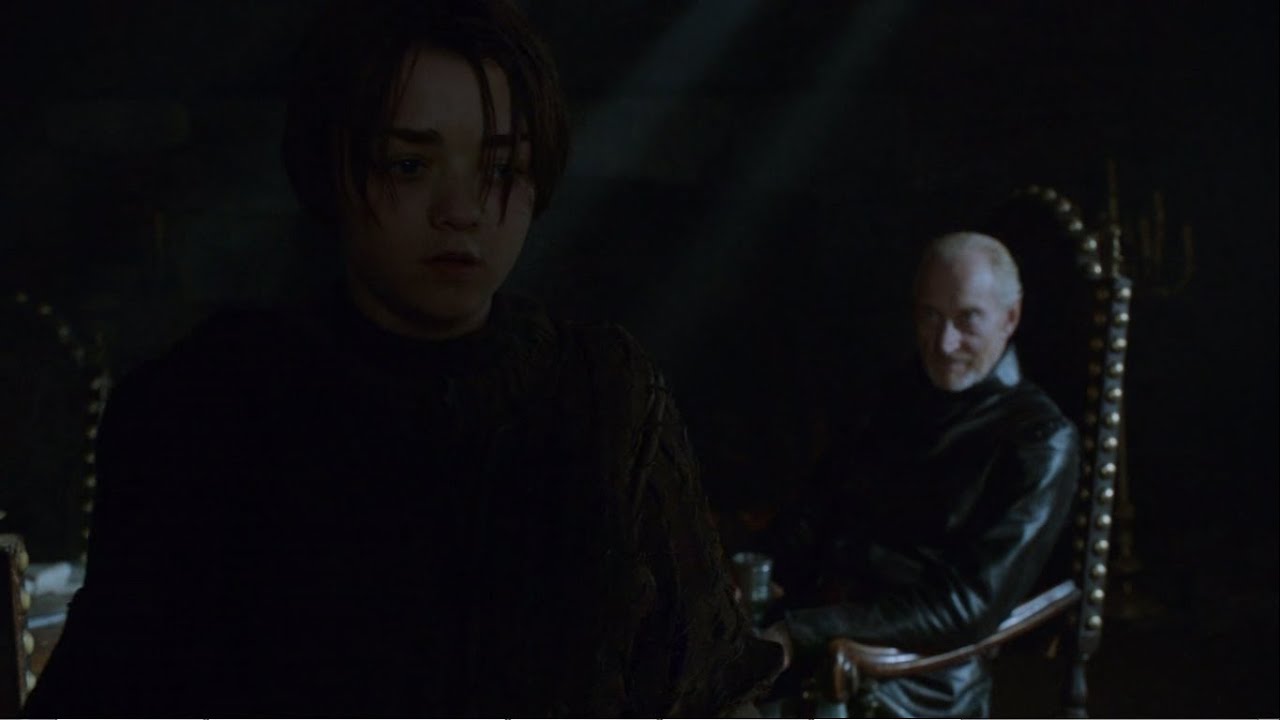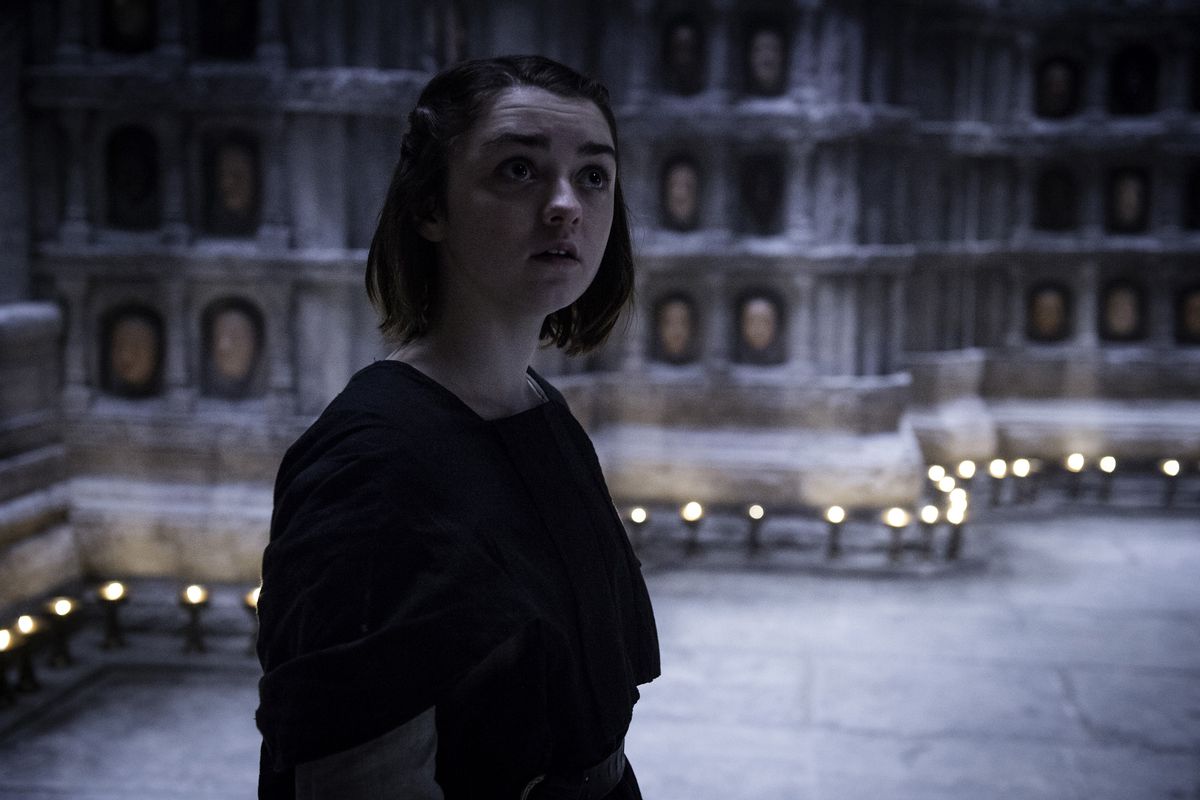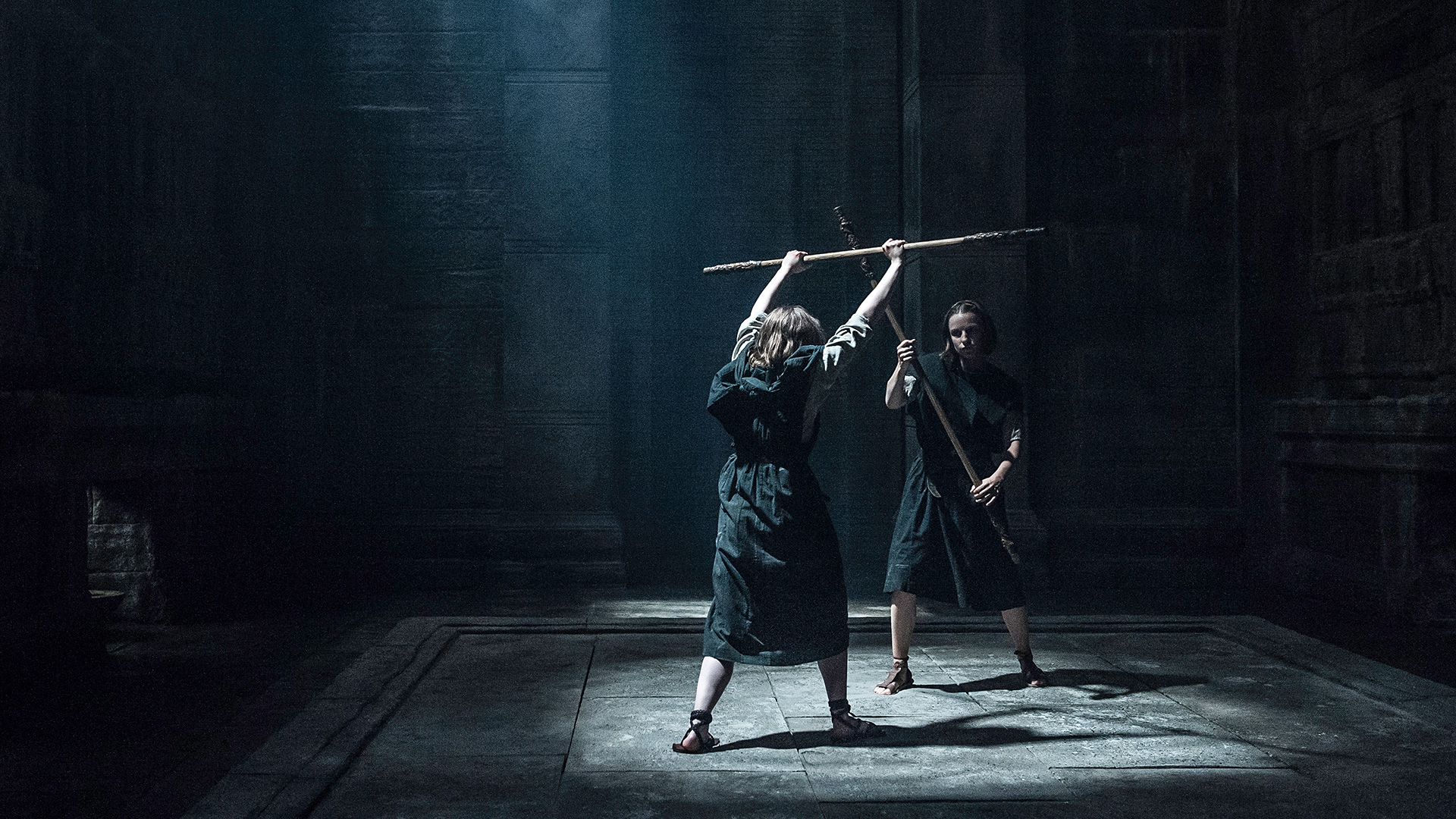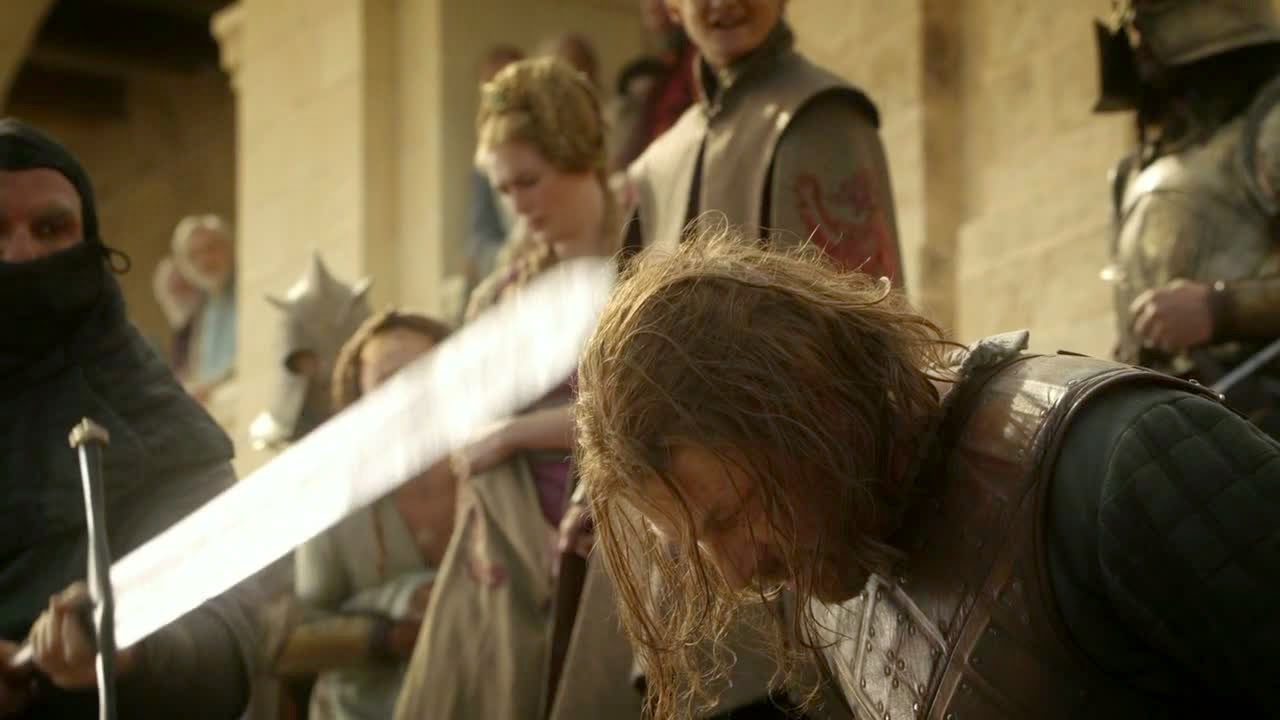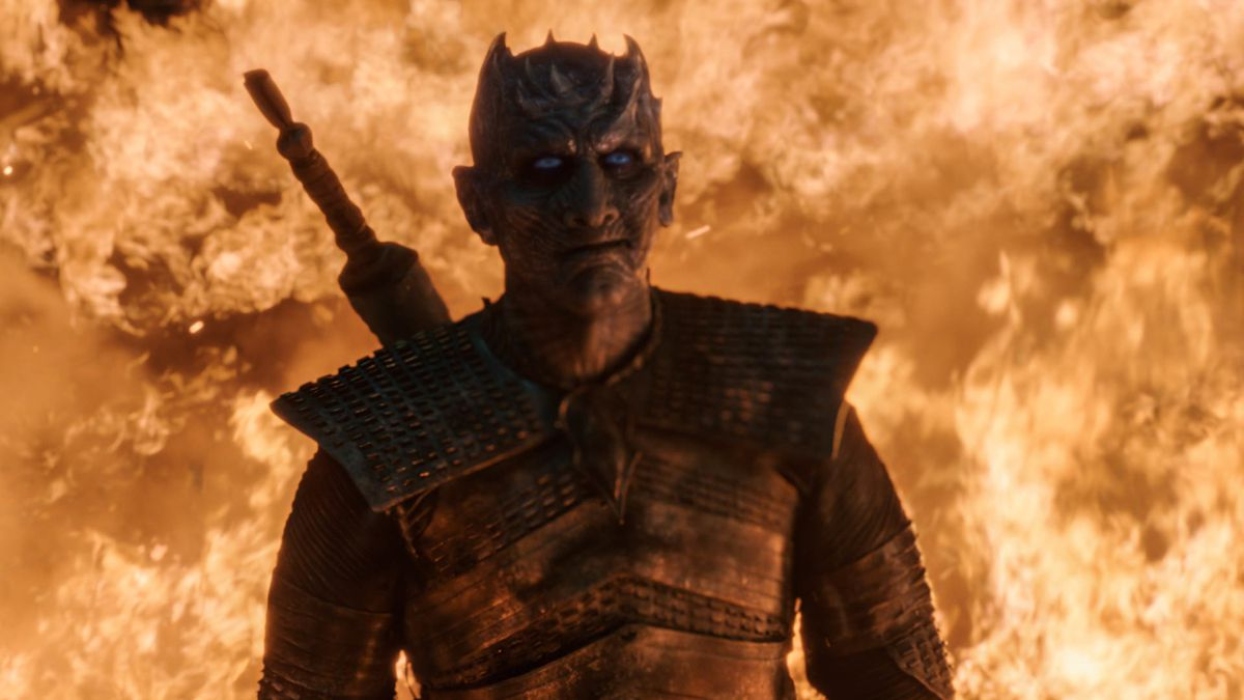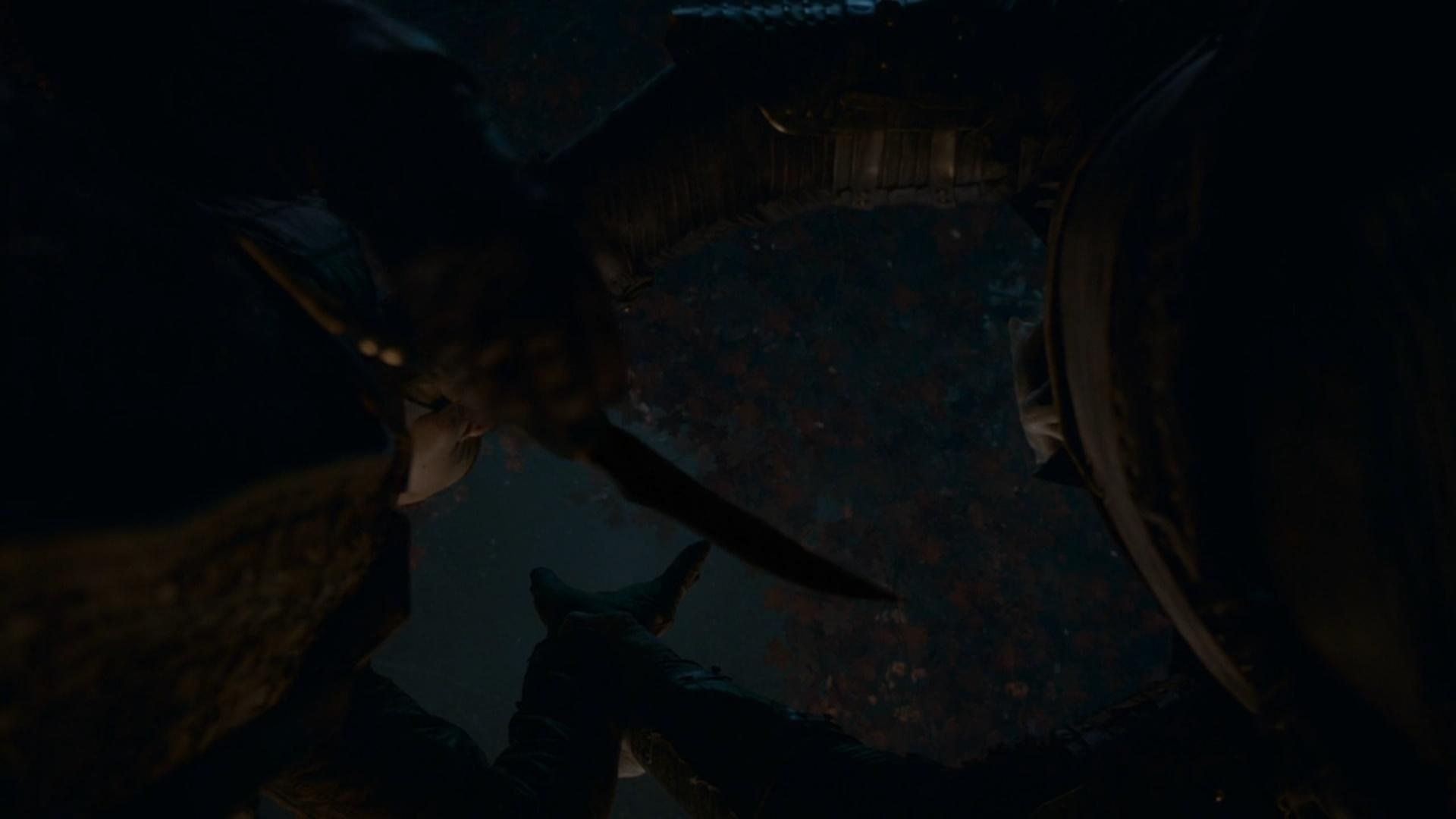Sad to say, however, not all fans felt the same way about our girl Arya. In fact, many fans are out there decrying Arya as a Mary Sue for her monumental accomplishment. They felt that it wasn’t earned and that her character was merely pandering to women with empowerment fantasies. To that I say: Go stick the pointy of something down your throat and shut up! I know a lot of us were expecting either Dany or Jon to be the one to kill the Night King (I know, I was) but I’m here to tell you why she isn’t freaking a Mary Sue and why she deserves to be the one to plunge that dagger into the Night King.
The Girl And The God of Death
I want to establish that Arya’s defining moment in this week’s episode did not come out of left-field. In fact, it’s been teased all the way back since season 1 of the show. Throughout the season, Arya trains with a Braavosi master swordsman, Syrio Forel who not only teaches her about the art of the blade but also who the true god of the world is, death. In the sixth episode of the first season, “The Golden Crown”, he tells Arya that “There is only one God and his name is Death. And there is only one thing we say to Death: Not Today.” Beyond the fact that the line itself is infinitely quotable, it also serves as a sort of foreshadowing. In the eighth episode “The Pointy End”, Syrio gives his life to defend Arya from the Lannister men but before he does, he asks Arya a simple question. What do we say to the god of death? She answers, “Not, today.” A type of female character who is depicted as unrealistically lacking in flaws or weaknesses.
In the religion of the Lord of Light, the one Melisandre, Beric and Thoros follows, the opposite of their god who represents life is known as the Great Other, the god of death. To the followers of the Lord of Light, the White Walkers are servants of the Great Other and they are led by their king or even “god”, the Night King. He is the very first White Walker, the one responsible for the first Long Night and the one who has the power to create more White Walkers. It’s safe to say that he’s seen as something of a deity-king to the White Walkers. Personally, I believe the God of Death, the Great Other and the Night King are one in the same person. So when putting this into perspective, we can see that since her departure from King’s Landing, Arya’s journey was preparing to meet the God of Death.
In the second and third season, we see her learning to avoid death at every turn and survive. For example, she managed to avoid capture from Tywin Lannister while serving as his cupbearer. She was staring death right in the face and she avoided it. Then, she meets one of the mysterious Faceless Men, Jaqen H’ghar who so happens to also serve the Many-Faced God, who is also a god of death. She saves him and he in turns saves her but before departing he hands her a Braavosi coin. A coin that will enable her to travel to Braavos and join the Faceless Men. At the end of Season 4, she offers the coin to the captain of a ship telling him “Valar Morghulis” meaning all men must die, he turns and tells her “Valar Dohaeris” meaning all men must serve.
In season 5, Arya joins the House of Black and White, the temple of the Faceless Men, and trains to become one of them. At this point, you may be thinking “Ummm…isn’t she serving the god of death?” And you’d be right! For a time, she was serving “the god of death” that is until she broke one of the rules and assassinated someone who was not sanctioned by Jaqen or his assistant, the Waif.
In season 6, they blind her and force her to train daily to prove her skills by fighting the Waif without being able to see. After finally managing to hold her own, Jaqen gives her another chance and sends her to assassinate an actress, Lady Crane. She disobeys their order and the Waif is sent to kill her. Once again, the god of death is on her heel. After a brutal and bloody struggle, Arya kills the Waif and informs Jaqen that she’s returning to Westeros. At that moment, she turned her back on the god of death, making her an enemy. The rest of it is history. So let’s recap. In the first season, Arya learned of the god of death. In the next two, she learned in a sense how to avoid the god of death. In season 4, she gets a taste of practising the art of death. In the fifth and sixth season, she learns FROM the god of death with her time in the House of Black and White. And in the final season, she does the impossible. She kills the god of death, the Night King! Her whole character arc has been leading to this moment. Don’t believe me? In an “Inside the Episode video” of the latest episode, creator of the show David Benioff revealed that they had known Arya would be the one to kill the Night King from at least three years ago. So this wasn’t some random out-of-nowhere Mary Sue moment. This was a carefully planned, premeditated arc that met its logical conclusion.
The Rules of the Game
Besides the clear road paved for Arya Stark to fulfil her destiny, there’s also the matter of the show’s narrative structure. For anyone saying that this came right out of nowhere and makes no thematic sense, I can tell that they haven’t really caught on to what Game of Thrones is all about. It’s about gritty realism and power. Arya’s moment doesn’t contradict with the rules or themes of the show. One recurring rule in surviving the game of thrones from day one is this: Don’t get cocky or underestimate your opponents, or you’ll die. And we’ve seen this time and time again in the show.
Ned Stark underestimated Cersei’s cunning and presumed that his authority as Hand of the King would be enough to see justice done. He’s get beheaded. We see Robb Stark brush aside the importance of upholding his oath to Walder Frey and the animosity building between him and his bannermen like Roose Bolton. He assumes he had it under control and now he’s six feet under. Stannis thought his rightful claim to the throne and Melisandre’s magic would be enough to win the battle against the Boltons. He loses and gets killed by Brienne. There’s the time Cersei overestimated her ability to keep the High Sparrow under check, which ended up with him sentencing Cersei to take that humiliating Walk of Shame. Oh and then, there’s the time Oberyn Martell stupidly struts around a defeated Gregor Clegane, arrogantly demanding Gregor confesses for his crimes. Long enough for Clegane to trip him up and smash his skull in! There are tons of examples I could wheel out to make this point clear but that would pretty much just be recapping all the most shocking moments in Game of Thrones…and we already did that. Let’s instead see if the Night King’s fall adheres to the rules of the show. Throughout the series, the Night King has been depicted as a sort of magic zombie Terminator. Nothing can kill him and nothing will stop him from making his army of the undead. The ice demon is a cold and calculating creature, planning six steps ahead of our heroes. Which is why it was kind of shocking how mind-blowingly arrogant and reckless he was in “The Long Night”.
The smart thing would have been to overwhelm the Starks and not show his face until he was sure every single one of the living was dead and essentially his. Instead, he was in the air flying around with his undead dragon, occasionally intervening in the battle. That left him right open for an attack from Jon, Dany and their dragons. You think the guy would know how to make a tactical retreat after getting knocked down from his steed, nope. He just stands there and allows Daenerys to light him up with Drogon, which to be fair didn’t have an effect on him and he probably knew that. Still, it was all done in the name of intimidation and showing how badass he is. The bugger even took the time to smirk at Dany. Tell me that’s not some cocky shit! Then there was the time he saw Jon Snow running towards him. Instead of taking off from the person who has one of the few only weapons capable of killing White Walkers, he chose to play double dare and try to raise the dead before Jon could get to him. I mean it did work and Jon failed to reach the Night King but it was nonetheless a risky move. He also took his own sweet time strolling to the Godswood, getting ready to kill Bran right after quickly doing away with Theon. As he’s about to draw his sword (slowly if I may add) to kill Bran, a young girl comes charging out of the woods at him. With a simple sleight of hand, she delivers a killing blow.
Think about that, the little girl who couldn’t save her father in the season is the one to destroy the greatest threat the world has ever known. This just goes to show that even the Night King is not exempted from the rules of the show. He got cocky, underestimated his foes and got shafted by a little lady with a little dagger. Look, some people out there will still think that Arya Stark is a Mary Sue no matter what I say, and that’s fine. That’s the beauty of art, it’s open to interpretation. If you’re one of them reading this, I implore you to rewatch the previous seasons of the show (I mean, if you really care that much about being right). Pay close attention to Arya’s story and I’m confident you’ll find a narrative thread that’s both cohesive and compelling. But to those who come to the comment section to just troll and expect a response, I say to you: Not today.
